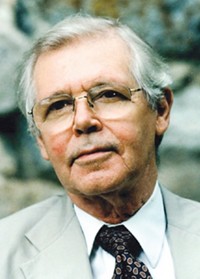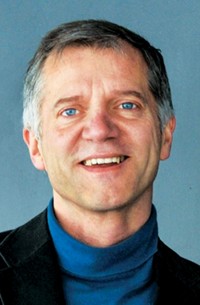Advertisement
Grab your lab coat. Let's get started
Welcome!
Welcome!
Create an account below to get 6 C&EN articles per month, receive newsletters and more - all free.
It seems this is your first time logging in online. Please enter the following information to continue.
As an ACS member you automatically get access to this site. All we need is few more details to create your reading experience.
Not you? Sign in with a different account.
Not you? Sign in with a different account.
ERROR 1
ERROR 1
ERROR 2
ERROR 2
ERROR 2
ERROR 2
ERROR 2
Password and Confirm password must match.
If you have an ACS member number, please enter it here so we can link this account to your membership. (optional)
ERROR 2
ACS values your privacy. By submitting your information, you are gaining access to C&EN and subscribing to our weekly newsletter. We use the information you provide to make your reading experience better, and we will never sell your data to third party members.
People
ACS Award In Analytical Chemistry
by Celia Henry Arnaud
January 6, 2014
| A version of this story appeared in
Volume 92, Issue 1
Sponsored by Battelle Memorial Institute
When Jonathan V. Sweedler was an undergraduate, he wasn’t really sure what analytical chemistry was. There were no analytical chemists on the chemistry faculty at the University of California, Davis, at the time.
“Luckily, I had the opportunity to work with Tomas Hirschfeld at the Lawrence Livermore National Laboratory for three summers on several analytical projects,” Sweedler says. “My enthusiasm for analytical chemistry has never left me.”
That passion has stood him in good stead: Sweedler, 52, now the James R. Eiszner Family Chair in Chemistry at the University of Illinois, Urbana-Champaign, is being honored for his contributions to the field of analytical chemistry.
“Jonathan is one of the preeminent creative forces in developing new techniques for small-volume analysis,” says Richard N. Zare, the Marguerite Blake Wilbur Professor in Natural Science at Stanford University.
“Jonathan has pioneered a number of techniques to analyze complex samples,” says analytical chemist R. Mark Wightman, Kenan Professor of Chemistry at the University of North Carolina, Chapel Hill. “These include MALDI mass spectrometry of single biological cells, micro-NMR, and a variety of separation techniques. All of these are firsts that have changed the way people practice analytical chemistry in general and bioanalytical chemistry in particular.”
Sweedler has chosen to apply his methods to the field of neuroscience. “Sweedler and his students have discovered and characterized literally hundreds of novel neuroactive peptides and studied the release of several classes of neurotransmitters, investigated neurotransmitter cotransmission, and accomplished this feat at the single-cell and even subcellular level,” Zare says.
In 2012, Sweedler became the editor of Analytical Chemistry, published by the American Chemical Society. “It was an exciting opportunity that I never expected,” he says. “Given the dynamic changes occurring in scientific publishing and the globalization of analytical research, it is a rewarding and interesting challenge that is taking me in unexpected directions.”
Sweedler received his B.S. in chemistry from UC Davis in 1983. His earned his Ph.D. in analytical chemistry in 1989 from the University of Arizona, where he worked with M. Bonner Denton. After completing joint postdoctoral fellowships at Stanford with Zare and neuroscientist Richard Scheller, now a vice president at Genentech, Sweedler joined the faculty at Illinois in 1991. He was promoted to associate professor in 1996 and full professor in 1999. He was named the James R. Eiszner Family Chair in Chemistry in 2008. In 2012, he became the director of Illinois’s School of Chemical Sciences.
Sweedler has received numerous awards, including the Ralph N. Adams Award from the Pittsburgh Conference in 2012, the Pittsburgh Analytical Chemistry Award from the Society for Analytical Chemists of Pittsburgh in 2007, the Award in Chemical Instrumentation from the ACS Division of Analytical Chemistry (DAC) in 2002, and the Arthur F. Findeis Award, also from DAC, in 1997. He was named a fellow of ACS in 2011 and of the American Association for the Advancement of Science in 2001.
Sweedler will present the award address before DAC at the fall national meeting in San Francisco.





Join the conversation
Contact the reporter
Submit a Letter to the Editor for publication
Engage with us on Twitter